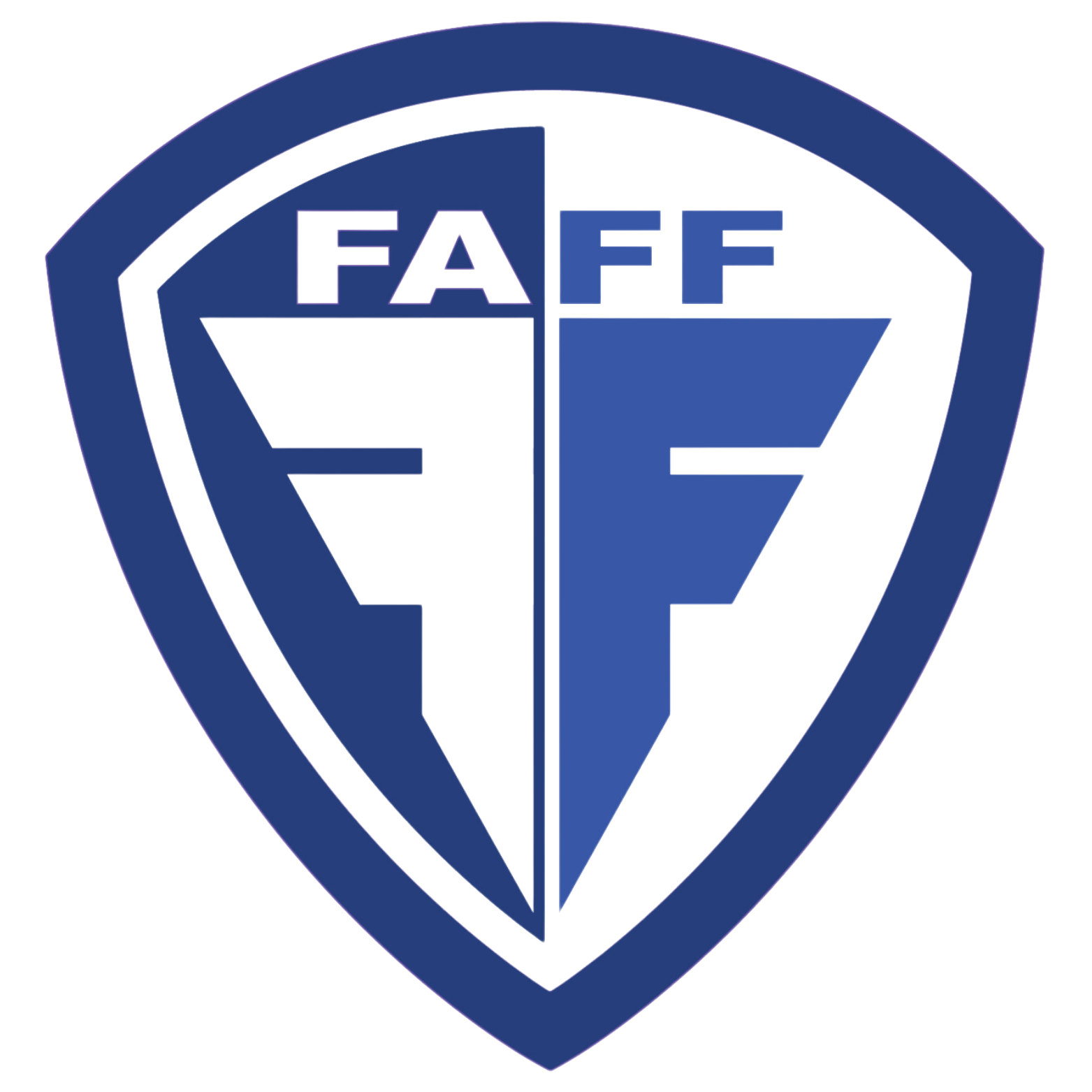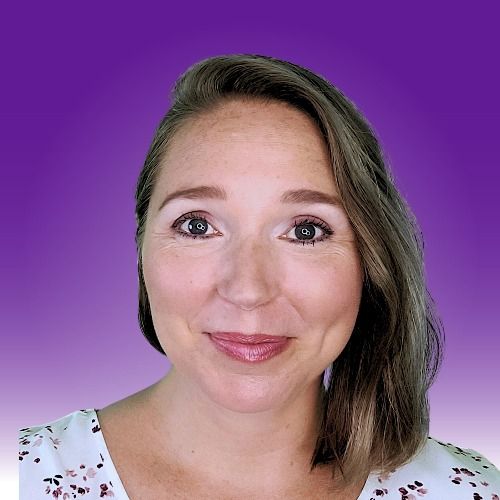Episode 7
Writing, Networking, and the Power of Serving, with Sean Gaffney
Episode 7 - Writing, Networking, and the Power of Serving, with Sean Gaffney
In this episode of the Faith and Family Filmmakers Podcast, hosts Geoffrey Whitt and Jaclyn Whitt welcome special guest, Sean Gaffney, a prolific writer with a wide range of work spanning plays, features, videos, and animation projects. Gaffney talks about his work for Big Idea, his time as a Story Administrator at Warner Bros, and his experience as Managing Director of Taproot Theater in Seattle. They delve into his journey into Christian filmmaking through theater, and how he transitioned to writing for animation and feature film. The discussion includes:
- His VeggieTales Experience
- The Power of Networking and Service
- Overcoming the Challenges of Self-Promotion
- The Story Behind 'In-Lawfully Yours'
- Being Prepared for Opportunities
- The Importance of Perseverance
- Advice for Aspiring Writers
Sean Gaffney has authored well over two hundred produced plays, features, videos, animation projects, YouTube series episodes and short films (including for Big Idea and SuperBook). He was the Story Administrator for Warner Bros. Features and the Managing Director of Taproot Theatre (Seattle). Gaffney currently is an Associate Professor in Media Communication and Screenwriting at Asbury University, as well as Associate Dean of the School of Communications. He received his BFA from Drake University, his MFA from Columbia University, and studied with Act One: Writing for Hollywood.
https://www.vimeo.com/gaffneyinkwell
Instagram: https://www.instagram.com/gaffneyinkwell/
Linked In: https://linkedin.com/in/sean-gaffney12
YouTube: https://youtube.com/@GaffneyInkwell
Vimeo: https://www.vimeo.com/gaffneyinkwell
Facebook: https://www.facebook.com/gaffneyinkwell
The Faith & Family Filmmakers podcast helps filmmakers who share a Christian worldview stay in touch, informed, and inspired. Releasing new episodes every week, we interview experts from varying fields of filmmaking; from screenwriters, actors, directors, and producers, to film scorers, talent agents, and distributors.
It is produced and hosted by Geoffrey Whitt and Jaclyn Whitt , and is brought to you by the Faith & Family Filmmakers Association
Support Faith & Family Filmmakers Our mission is to help filmmakers who share a Christian Worldview stay in touch, informed, and inspired. If you would like to assist with the costs of producing this podcast, you can help by leaving a tip.
Enter the Faith & Family Screenwriting Awards festival
Jaclyn's Actor's Reel Script Writing Workshop: https://www.faffassociation.com/actors-reel
Copyright 2024 Ivan Ann Productions
Transcript
Welcome to the Faith and Family Filmmakers Podcast.
Geoff:Today with accomplished writer across genres and some important perspectives on writing and filmmaking in the Christian space.
Geoff:Today we've got Sean Gaffney.
Jaclyn:Sean Gaffney has authored well over 200 produced plays, features, videos, animation projects, YouTube series episodes, and short films, including writing for Big Idea and Superbook.
Jaclyn:He was the Story Administrator for Warner Bros.
Jaclyn:Features, and the Managing Director of Taproot Theatre in Seattle.
Jaclyn:Gaffney currently is an Associate Professor in Media communication and screenwriting at Asbury university, as well as Associate Dean of the School of Communications.
Jaclyn:Welcome to the show Sean Gaffney.
Geoff:Welcome, Sean.
Sean:Well, thank you for having me.
Jaclyn:All right, so I actually, found you, I tracked you down, um, because I thought, you seem like an interesting person to get to know.
Jaclyn:I really like one of your movies.
Jaclyn:Um, and so I'm glad that you, uh, accepted my invitation to the podcast, but I wanna know, how did you even get into writing in the first place?
Sean:Wow, yeah, um, I'll try to make this a short story.
Sean:It's a long story short, uh, so, I'll go from novel to bumper sticker if I can.
Sean:I've always been a storyteller.
Sean:I never really thought...
Sean:I never thought of, of storytelling as a career until much later in life.
Sean:I came to it through theater.
Sean:My background, my training is in theater.
Sean:I was trained to be a theater producer, so I was producing, stage management, general management, and just telling my stories on the side.
Sean:While I was the managing director for Taproot Theater in Seattle, they needed a script.
Sean:I wrote a script, they produced my script, and I thought, Oh, wait, I can, I can do this for a living.
Sean:That's awesome.
Sean:Uh, so that's what kind of got me on that particular road.
Sean:and as I was writing more and more there, I, I started to branch out a bit.
Sean:I sold a story idea to VeggieTales.
Sean:Uh, that kind of, uh, launched me into the video, television, film, world side of things.
Jaclyn:Yeah.
Jaclyn:Veggie Tales.
Jaclyn:It,
Sean:Yeah.
Jaclyn:like, Veggie Tales is like an iconic...
Jaclyn:for Christians, you know, like in the nineties...
Jaclyn:it didn't matter if you were a kid.
Jaclyn:I know it was like little cartoons and, you know, but I, I was a teenager and I loved veggie Tales.
Sean:Oh yeah, I fell in love with it as an adult.
Sean:Uh, it was, you know, my wife and I don't have kids.
Sean:We often, uh, have to pull in our nieces and nephews to justify some of the things that we love, including VeggieTales.
Geoff:So, tell us how that came to be.
Sean:It Was actually, it was in the early days, and, I was talking with other adults who loved it, a lot of college aged people loved it, uh, adults like me loved it, we just thought, you know, it's great, it's kind of the Looney Tunes of the time.
Sean:Ostensibly it's a children's form of media, but written for adults.
Sean:I actually even once asked Mike Nawrocki, it's like, how do you write, how do you figure out what's funny for a five year old?
Sean:And he says, I have no idea.
Sean:I write what's funny to me, it just so happens that five year olds and me, you know, we, we have the same sense of humor, right?
Sean:So I was talking with a friend and they, and they said, too bad VeggieTales is so limited.
Sean:And I said, how, what do you mean limited?
Sean:And they said, well, there are so many Bible stories you just can't tell for children.
Sean:And I said, well, like what?
Sean:And they said, well, uh, David and Bathsheba.
Sean:You could never tell that story for children.
Sean:So I wrote, a story about David and Bathsheba for children, using veggie tales to kind of prove that just with a little bit of imagination, uh, you can tell any, any story.
Sean:Uh, and that is the story that eventually became King George and the Ducky.
Sean:Uh, yeah, it was an idea, a friend of mine, uh, Brian Ballinger, was an animator.
Sean:Uh, he was being wooed by VeggieTales.
Sean:Part of his interview, uh, he said, Hey, while we're talking, would you mind reading my friend's script?
Sean:They didn't take unsolicited scripts, so that completely went around the system.
Sean:Uh, but they liked the idea.
Sean:Phil Vischer, uh, took the idea.
Sean:Completely rewrote it, uh, thankfully.
Sean:I'm over the moon that it happened.
Sean:He, he made me look so good,
Geoff:uh
Sean:night and day.
Sean:It's the, the first video script I'd ever written.
Sean:Uh, I've actually used it in classes, to show a negative example of trying to write a video script.
Sean:So yeah, Phil kind of made me.
Sean:He, he made me look really good and I, now I get all the credit, uh, for it.
Sean:So I even have on my desk here at Asbury, I have my opening night ducky, uh, when they, they flew us out to Chicago, my wife and I, to see the show, and that kind of, that kind of launched me.
Sean:Um, yeah, you were saying earlier that, you know, VeggieTales is kind of, you know, a holy grail for, for a certain generation.
Sean:I joke I could win a Pulitzer Prize, I could win an Oscar for a feature film, uh, I could, I could solve world peace, and my tombstone will say he wrote for Bob and Larry, because that's all that people are going to care about,
Sean:uh, it's fun.
Sean:It, it, it opened a lot of doors for me, and kind of launched me into, you know, so I still write for theater, but I also write a lot for animation and I write a lot for feature film.
Sean:I write for television.
Sean:Um, I tell people if it's a script, I'll write it.
Jaclyn:Nice.
Jaclyn:Okay, so, but then what was your next step?
Sean:Kind of starting to think beyond just theater for writing, um, I found a program, Act One Writing for Hollywood, uh, which is a program for Christians interested in writing screenplay and television.
Sean:Um, and I found that program and went and, and spent a month in Los Angeles studying with them.
Sean:It's a fantastic program.
Sean:I've, been, uh, in touch with them ever since.
Sean:I still teach for them.
Sean:Their community, uh, has been a very important community to me.
Sean:But that kind of opened up, my wife and I's eyes to Los Angeles.
Sean:we prayed over the city on the, on our last night there for Act One before driving back to Seattle, and we both felt like God was saying, we want you to move here.
Sean:This is going to be your next step.
Sean:I will admit it was a reluctant step.
Sean:My wife is a Northern California girl, so going to Southern California is kind of a big deal.
Sean:Um, and Los Angeles, I'm a New York City boy, so Los Angeles has never been kind of the environment either of us were seeking.
Sean:Uh, so it took us a while to obey God's call, but eventually we did.
Sean:And then spent 12, 13 years there.
Sean:Amazing, amazing group of people.
Sean:It was really hard to leave when it came time to leave.
Sean:God just opened up a lot of doors.
Sean:So I worked for Warner Brothers in their feature story department for nine years, five years full time.
Sean:I got a chance to be mentored more, write some television things, got a lot more animation got my feelers out there.
Sean:It just made a lot of really strong connections.
Sean:Uh, so, yeah, that, kind of put me into the next, the next zone.
Jaclyn:And were query letters part of that or did you just meet the right people and then get offered jobs?
Jaclyn:Like, how does that work?
Sean:Yeah, you know, it's, it's strange.
Sean:Yes, query letters were a part of that, but very few jobs off of query letters.
Sean:My career has been one where very few of the, the major jobs I've gotten were jobs I applied for.
Sean:They were jobs that God designed.
Sean:They were really, really were kind of being in the right place at the right time, um, working with the right people.
Sean:My students here will, you know, think that, oh boy, I keep name dropping because, oh, I've got this friend who did this project and I have this friend who did this project, and I have this friend who's currently working on this thing.
Sean:Um, and they're like, how do you meet so many famous people?
Sean:Well, you go to church for 13 years in, in a town and you meet people.
Sean:And so most of my connections were not because I applied for a job and got the job.
Sean:Most of my connections were being in relation, being in ministry with people, attending church with people, being in small group, with people.
Sean:And then, and then just serving.
Sean:Um, you know, I mean, that's kind of the secret, my secret to networking is service.
Sean:I'm no good at parties.
Sean:I'm no good at meeting people blind and selling myself.
Sean:I'm horrible at selling myself.
Sean:I have tips and tricks if you have trouble trying to sell yourself, so we can talk about that later.
Sean:Um, but I'm just...
Jaclyn:Yes, let's talk about that later because I know I struggle with that too and a lot of my other friends, especially my writers, My writing friends, they also struggle with that because I think as writers a lot of the time, like, we're in our own zone.
Jaclyn:We just, we just love the story.
Jaclyn:We love to develop it and write it, but like we're not necessarily that charismatic...
Jaclyn:Some people are.
Jaclyn:Some people are charismatic or actors or whatever also, but I think a lot of the time writers are more on the introverted side.
Jaclyn:And so it's like we don't necessarily naturally sell ourselves, uh, you know, in our projects.
Jaclyn:We're just happy to write.
Sean:Selling yourself is overrated and, you know, the truth of getting the jobs, um, is, yes, connections are important, but we think we have to make connections by being superficial, uh, by being cutthroat about selling ourselves above others, and really serving and showing a servant heart...
Sean:My friend Nicole Baer is an editor, um, so she's, she's currently on, um, NCIS Hawaii, she's done SWAT, Supernatural, Timeless.
Sean:She's a fantastic editor, but the way she got into the business is she found people whose work she admired, and she would write them a note saying, I really like your work, and she would bake a batch of cookies and deliver cookies to them.
Sean:So it wasn't even...
Jaclyn:I can bake.
Sean:Yeah, you can bake, right?
Sean:That was her strength, and of course, you know, they, they want more cookies, so they keep in touch with her, so they can get more cookies, right?
Sean:Um, but that was the thing that opened the door that said, oh, I like you, I want to work with you, what do you, what do you do?
Sean:Um.
Sean:I was a volunteer for our church drama group, Bel Air Presbyterian Church in Hollywood.
Sean:We had a group of about 40 volunteers.
Sean:They were all people who were working in the industry.
Sean:And we made...
Sean:every week would make movies for the pastor.
Sean:Um, you know, to go along with the sermon, just a little short, three to five minute pieces.
Sean:But in working alongside those...
Sean:that, that became kind of a core group of people that we would get each other's jobs, because we would want to work together.
Sean:I'll tell you this, uh, little side story.
Sean:My friend Karen Lund, she's the, uh, producing artistic director of Taproot Theatre in Seattle.
Sean:For years as the associate artistic director, she was in charge of casting.
Sean:And, people would often accuse her, and you hear this all the time with any hiring situation, how people would say, oh, Karen, she only hires her friends.
Sean:And, uh, Karen's response to that was, well, no duh, of course I do.
Sean:I hire two kinds of people, friends and strangers.
Sean:And after we have spent six to ten weeks working together, If we're not friends, if we hate working with each other, if we don't want to work with each other, why would we work together again?
Sean:So, friends and strangers.
Sean:And, and the key is, be a good stranger.
Sean:Be the kind of stranger that becomes a friend to people when they're done.
Sean:See people as people.
Sean:Serve people.
Sean:And that's, that's really the thing that has gotten me more jobs than anything else is people remember me because I served them in some way or another.
Jaclyn:Wow.
Jaclyn:Yeah, that's such great advice.
Jaclyn:And it's true.
Jaclyn:I know I've actually gotten jobs because I had been recommended to somebody that, the person that recommended me was somebody that I had helped out on a project that I didn't even get paid for that project.
Jaclyn:I just I always did it because I knew that I could help them further their career if I got them a good script.
Jaclyn:Um, but then they ended up getting me work later on.
Sean:Yeah, all the time.
Sean:Like I said I...
Sean:very, very few jobs have I gotten because of the traditional, I sent out a, query letter and responses came back.
Sean:Most of them are, yeah...
Sean:A friend going, oh, hey, I'm not available.
Sean:Gafney is.
Sean:Just kind of reaching out that way.
Sean:Or, even, being at a party, just talking with people, being at the right place at the right time.
Sean:For your listeners who want to be writers, "Be ready", is a big part of it.
Sean:I think a lot of people are like, oh, I need to get the interview.
Sean:And then they get the interview and someone's like, Alright, can I read your script?
Sean:And they're like, Okay, I'll go home and write one.
Sean:No.
Sean:Be ready.
Sean:your ideas.
Sean:Have things ready to go.
Sean:Always be writing.
Sean:Yeah.
Sean:And then just be available to people.
Sean:Be available to help out.
Sean:Be available to give advice.
Sean:I've gotten a couple jobs now where I was hired Just to be a script consultant, and the writer has liked me, or the director or the producer has liked me, and said, Hey, will you come on as a, as a writer?
Sean:And it's not because you're doing it to angle, and that, and that's the other important part.
Sean:When you're serving to promote yourself, you're not really serving.
Sean:Really serve, really help, just as you said, help that person get to their next level, help that person move forward.
Jaclyn:Yeah, exactly.
Sean:And let go, let Go and let God, right?
Geoff:We've heard this so many times, from different people, people quite successful in, in different areas.
Geoff:A successful writer, for example, who in his advice to people, you know, wanting to, to break into the industry, He talks about networking, talks about meeting people, talks about going to festivals.
Geoff:But, He cautions, it's not about finding people that you want to talk to to promote yourself.
Geoff:It's not about finding people that you want to ask them to do something for you.
Geoff:It's simply about finding people and getting to know them.
Geoff:And in return, they're getting to know you.
Geoff:And it's exactly what you've been saying.
Geoff:Work will come from that.
Geoff:Not from you asking them for something.
Jaclyn:Mm hmm.
Sean:Absolutely, and, as writers, as creators, we're naturally curious people.
Sean:I don't know why we turn that off when we network.
Sean:And we're like, so focused on, I need to get a job, I need to get a job.
Sean:You're going to have a better time at a party if you're not trying to get a job, if you're just genuinely interested in the person you're talking to.
Sean:The people at...
Sean:the people who do this, we're interesting people.
Sean:We have stories.
Sean:So just, just find somebody and talk about their story.
Sean:I have a, I have another friend who um, She was doing the speed dating pitching.
Sean:You get three minutes at a table and a bell rings and you get up and you move to another production company and you pitch your story, you get three minutes, um, and you, and just kind of moving around.
Sean:She did a couple of those, she was already kind of just sick and tired of, that fake, fake personality you're putting on as, as you're dating, right?
Sean:Um, as you're, as you're trying to get somebody to like you in three minutes.
Sean:And so she decided that, the next one she sat down at, she said, you know what, forget about it, you have my logline if you want to hear my pitch, you can talk about it later.
Sean:How are you doing?
Sean:How's your day been going?
Sean:And the producer was like, I'm just so sick of being barraged with these stories, just as much as you are sick of putting on the plastic face to tell them.
Sean:And they just chatted for three minutes, and then she went to the
Sean:next one and did the same thing, and she got more callbacks from that than she did from those that she just straight pitched to.
Jaclyn:I can imagine.
Jaclyn:Yeah, I know when I pitch, what I don't like is I feel like I'm, I'm saying, Please like me.
Jaclyn:Please like me.
Jaclyn:And I, I hate that feeling for myself because like, I don't do that with anyone else.
Jaclyn:Like when I just meet people, whether it be like on the street or a friend of a friend or anything like that.
Jaclyn:And so I find that very stressful when it comes to pitching, and so, I need to learn how to, approach it differently because, I think that part of what I'm hearing you saying also is when you are walking in God's will, then you're where you need to be doing what you need to be doing.
Jaclyn:And so it's not about, it's not about forcing something to happen or being desperate for something to happen.
Jaclyn:It's just being in His will, doing everything that you know how to do, that He's given you to do.
Jaclyn:And that's all, that's all you can do.
Jaclyn:You know that if you're right with God, then you're, you're good.
Sean:Absolutely.
Sean:Absolutely, yeah.
Sean:Yeah.
Sean:So let me give you two, two real quick, um, pitching tips, or party networking tips.
Sean:Another thing that my friend Karen Lund and I would do, because we both hated the same thing, I hate going into a party and saying, here's who I am, love me, love me.
Sean:But I love Karen.
Sean:So we would go to events and I would spend the night promoting Karen and she would spend the night promoting me.
Jaclyn:Oh, nice!
Jaclyn:You know, if you're helping somebody else, it's really easy to get out of your own skin, get away from yourself, and just kind of, you know, like, look, oh, you're looking for this kind of a person?
Jaclyn:Karen is absolutely the right kind of person for you.
Jaclyn:My wife does this all the time.
Jaclyn:She would be much happier walking away from a networking event going, Oh, I got five jobs for five other people.
Jaclyn:By finding the right person for the right thing and then you're not selling really, you're really just helping somebody find the right thing.
Jaclyn:So that's, that's one
Jaclyn:And then the other one is give yourself a job.
Jaclyn:My wife, when I go to conferences, she assigns me...
Jaclyn:she'll say five business cards.
Jaclyn:So I go to a networking event, I have to give away five business cards.
Jaclyn:So what I do, literally, because everybody there is just as awkward.
Jaclyn:Everybody there hates talking about themselves.
Jaclyn:So I will go up to somebody and I'll say, excuse me, my wife has assigned me, I have to give away five business cards because she knows I hate walking up to strangers and just talking to them, can I give you a business card?
Jaclyn:And that cracks the ice, they laugh because they know, and they're usually like, can I give you one too?
Jaclyn:And now that we're laughing, now that we both know that we're awkward people, then we can just talk.
Jaclyn:Mm hmm.
Jaclyn:Yeah, you've acknowledged the elephant in the room, and now can just relax.
Jaclyn:Yeah.
Jaclyn:No, that's perfect.
Jaclyn:And you know, it's, it's a great way to be memorable, by helping people.
Sean:Yeah.
Sean:Yeah.
Sean:Absolutely.
Sean:Good works have good side benefits.
Jaclyn:Yes.
Jaclyn:Okay, so I want to ask you about In-Lawfully Yours, uh, because that was the movie of how we got connected.
Jaclyn:Actually I really enjoyed that movie when it came out.
Jaclyn:I watched it with my husband and we really enjoyed it.
Jaclyn:But I know every project has a story, but this one has a story.
Jaclyn:So let's hear it.
Sean:Oh, such a story.
Sean:Uh, yeah, because I was working on that for, uh, well over seven years before it actually got any kind of notice or attention.
Sean:Uh, it started in a classroom.
Sean:I was teaching a class on adaptation.
Sean:I had a student, uh, who, suggested, the Ruth and Naomi story as a, a rom com.
Sean:What happens if we, if we set that modern day?
Sean:He worked on it for about a day, and then came and said, This is too hard, I can't make this work, and we switched to a different project.
Sean:I couldn't get it out of my mind.
Sean:Um, I just had, scenes in my mind of, of Ruth and Naomi together, and what that would look like.
Sean:so I went to him and I said, Can I steal your idea?
Sean:Can I take it and run with it?
Sean:And he was like, You have my blessing, I'm not gonna do anything with it.
Sean:And so I ran with it, and over the next, you know, half a decade plus, um, just developed it into a script I called then, Jesse and Naomi.
Sean:Almost got some producers interested in it.
Sean:Uh, it was, to be honest, it was too Christian for the secular market and it was too secular for the Christian market.
Sean:It doesn't hit all of the right buttons.
Sean:My lead is an atheist who you're supposed to love.
Sean:Not because she's going to be converted, but because she's a lovable human being.
Sean:Um, it challenges the church and where we're at,.
Sean:Uh, which, especially, five to ten years ago was not very popular in the Christian subculture.
Sean:We're supposed to challenge the outsider, not ourselves.
Sean:So there's a lot of problems that it had with it that kind of made it a tricky sell.
Sean:Um, uh, ended up moving away from L.
Sean:A.
Sean:and, uh, was at an, at a university and, Corbin Bernsen, uh, his, his company he's been producing independent films for the past 10 years, some very, just really strong work, uh, was looking for additional partners.
Sean:And, so it was a possibility for the university to partner with him.
Sean:So they were like, does anybody have a script?
Sean:I pulled that out and dusted it off and submitted it with the other scripts they submitted.
Sean:Corbin read it and loved it.
Sean:And that was, you know, again, something I didn't apply for, really.
Sean:I just happened to be there at the right time and had a script that really kind of hit him in the right way.
Jaclyn:Mm hmm.
Jaclyn:Yeah, you had the script ready.
Jaclyn:Like that's, that's part of it, right?
Sean:Had the script ready.
Sean:Had the script ready.
Sean:Uh, yeah, so he, he called me and, and, you know, said, Hey, I love your script.
Sean:We want to make it.
Sean:Um, and that, that became the script that they then, produced together.
Sean:So, yeah, that's, that's one part of the story, but that's how it got in front of people.
Sean:And it is about timing, because again, it was a script that I had finished years before, but it was meant to be produced by Corbin.
Sean:And so we needed to wait for his timing, right?
Sean:waiting for God to make sure we're all together, and then boom.
Sean:When the right time hits, off it goes.
Jaclyn:Yeah.
Jaclyn:well this has been, uh, a really interesting interview and we're going to be getting into some more stuff in the members only portion.
Jaclyn:We're going to be getting into, uh, he's got some advice for writers, which I'm going to be happy to hear.
Jaclyn:You know, making sure you don't get in your own way or, how to avoid pandering to certain, whether it be producers or genres or culture or whatever...
Jaclyn:That kind of stuff, so I'm very much looking forward to that.
Jaclyn:Before we leave this portion of the interview though, do you have any final thoughts?
Jaclyn:Sean Gaffney for our listeners.
Sean:Sure, um, you know, so many.
Sean:So many.
Sean:we've been talking about networking, so my wife would be upset if I don't do a little networking myself.
Sean:If you want to find me, I have a website, www.
Sean:gaffneyinkwell.
Sean:com.
Sean:You can go there to see other projects that I've worked on.
Sean:I started doing a vidcast..
Sean:Uh, five minute and under...
Sean:I'll be watching a movie.
Sean:I'll stop the movie and I'll say hey here's a good example of this writing technique or here's a missed opportunity that they might have.
Sean:So you can find the vidcast and links to that on you know, YouTube, Vimeo, Facebook, all the usual places.
Sean:But if you go to gaffneyinkwell.com, you can find all of that, and you can kind of see what else, what else I'm doing and, and how to get a hold of me if you have any, further questions.
Sean:And then really just, as we've been talking about, the best way for you to forward your career is stop thinking about your career, start thinking about others, and just ask God, who do you want me to be helping today?
Geoff:Well, that's really good advice.
Geoff:And we will get those links into the show notes as well.
Geoff:And, uh, we've really enjoyed talking with you today, Sean.
Geoff:Thank you so much.
Sean:It's been a blast.
Sean:Thank you.





